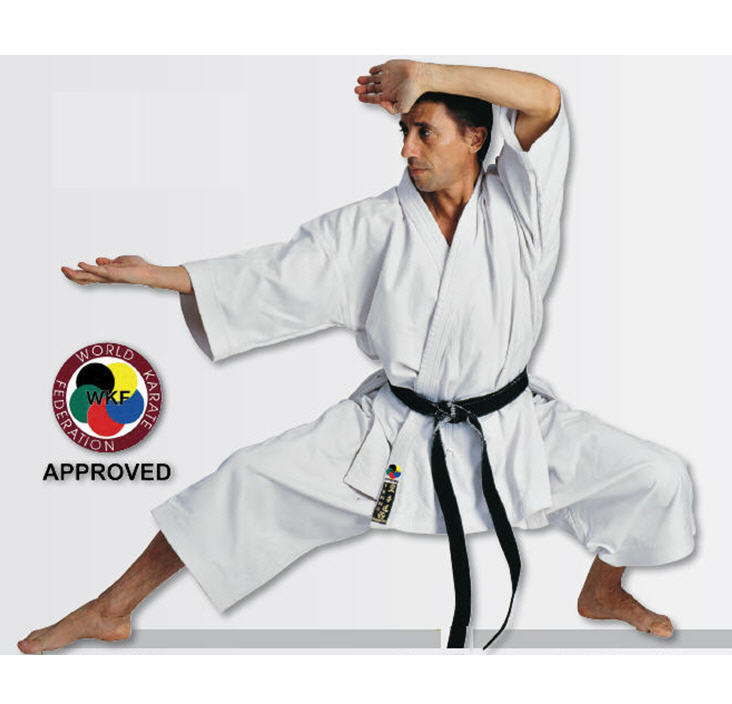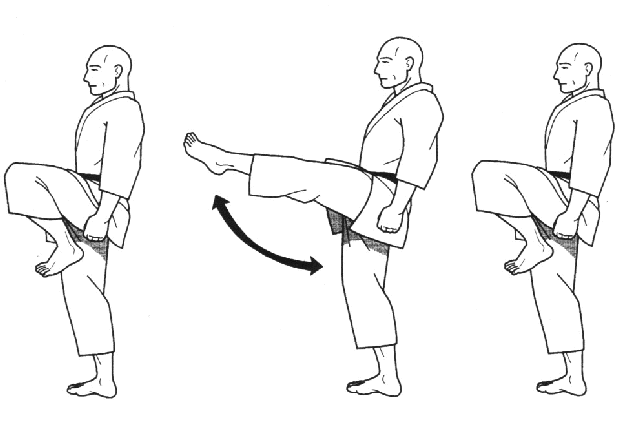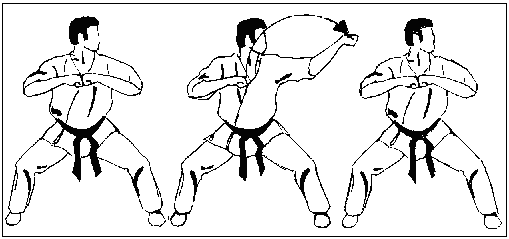The first thing you are taught in karate are the basic stances. Stance like the stance you use to bow and the stance you go into before you start a kata.
Your stances form the basis of all the things you do in karate if your stances are bad your karate will be bad, your stances also give you balance while doing karate.
The first stance you learn when you start is Musubi dachi (Mus uba dutch) the stance you use when you bow.
The next stance you learn is Heikō dachi (ekqua dutch) this is the stance you go into to get ready to start.
After learning your second stance you learn Sanchin dachi (sun shin dutch). The small stance.
The last basic stance you learn is Zenkutsu dachi (Zen guto dutch). The long stance.









